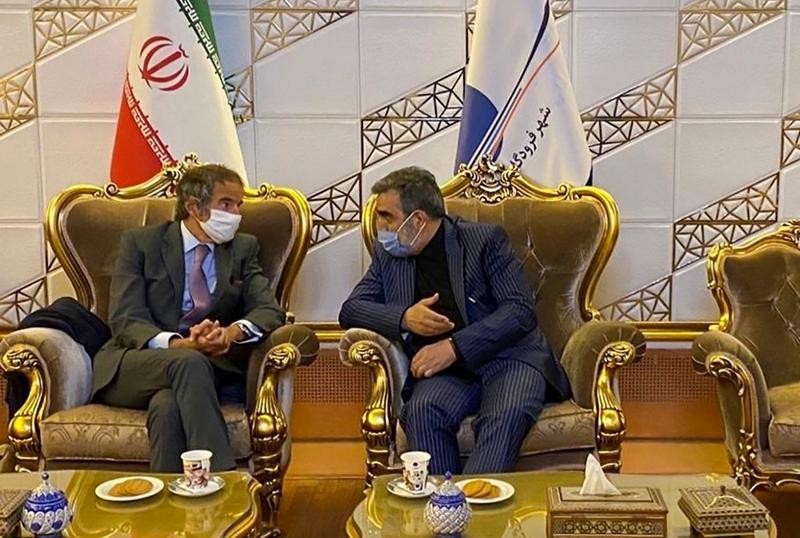 A handout picture released by Iran's Atomic Energy Organisation on Aug 24, 2020 shows the Organization spokesman Behrouz Kamalvandi (right) speaking with the Director General of the International Atomic Energy Agency (IAEA) Rafael Mariano Grossi upon his arrival at the Imam Khomeini International airport in Tehran.
(ATOMIC ENERGY ORGANIZATION OF IRAN / AFP)
A handout picture released by Iran's Atomic Energy Organisation on Aug 24, 2020 shows the Organization spokesman Behrouz Kamalvandi (right) speaking with the Director General of the International Atomic Energy Agency (IAEA) Rafael Mariano Grossi upon his arrival at the Imam Khomeini International airport in Tehran.
(ATOMIC ENERGY ORGANIZATION OF IRAN / AFP)
TEHRAN - Behrouz Kamalvandi, spokesman for the Atomic Energy Organization of Iran, said on Sunday that any restrictions on the international monitoring of Iran's nuclear program require the approval of "higher instances".
Earlier on Sunday, Iran's parliament promoted a bill, seeking among other measures to stop all the International Atomic Energy Agency (IAEA) inspections in Iran beyond the requirements of the Non-Proliferation Treaty's (NPT) Additional Protocol
"With regard to access (to Iran's nuclear facilities), we will make sure that it remains within its defined and normal limits," Kamalvandi was quoted by official news agency IRNA as saying.
ALSO READ: Tensions rise in Persian Gulf after Iran scientist assassinated
Earlier in the day, Iran's parliament promoted a bill, seeking among other measures to stop all the International Atomic Energy Agency (IAEA) inspections in Iran beyond the requirements of the Non-Proliferation Treaty's (NPT) Additional Protocol.
The bill was given "double-urgency" status after Iran's top nuclear scientist Mohsen Fakhrizadeh was assassinated on Friday, but Kamalvandi said that hostile attacks should not be generally linked to the IAEA inspections of Iranian facilities.
READ MORE: Iran condemns nuke scientist's assassination, vows punishment
The spokesman did not specify which "instances" he was referring to, but every bill in Iran requires the ratification of the Guardian Council to become law, and according to Iran's Constitution, it is Iran's Supreme Leader Ayatollah Ali Khamenei who "determines the overall policy" of the country, "after consultation with the Expediency Council”.


